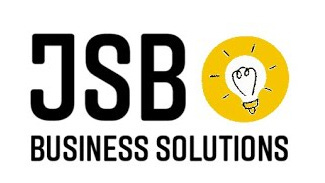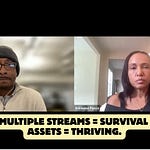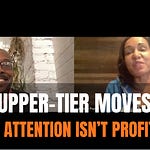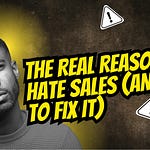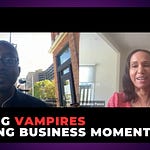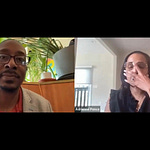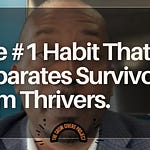When the government shutdown transpired, it wasn’t just politics at play. It was a stress test.
A quiet experiment to see what would happen when the flow of assistance slowed or stopped altogether. Some shrugged it off. Others panicked.
But for those of us who’ve been on the edge before - who’ve stared down empty bank accounts and the quiet dread of uncertainty - the moment felt familiar. Not surprising. Just real.
This conversation between Adrienne Ponce and I wasn’t meant to be a sermon. It was a reflection. A dialogue between two entrepreneurs who’ve been broke, bruised, and buried, and decided to build anyway.
The Mirage of Stability
The irony of stability is that it’s often an illusion.
At the National Microloan Conference, I listened as an executive shared grim housing stats: low inventory, rising rates, hesitant buyers. It sounded bad on paper.
Markets crash. Jobs vanish. Benefits dry up. The people who survive aren’t the ones with the fanciest résumés — they’re the ones who learn to pivot.
As Adrienne said, “If you’re always in pivot mode, you’re not turned off by what’s going on. You’re just ready for the ebb and flow of it all.”
The real danger isn’t the economy. It’s waiting for it to get better.
The Trap of Temporary Help
Let’s be clear: there are people who need assistance: those dealing with real disability, illness, or systemic hardship.
This message isn’t for or about them.
This is about the able-bodied, capable, mentally sound individuals waiting for someone else to fix their situation.
Assistance can be a bridge. But too many start building houses on that bridge.
The application process alone (the forms, the verifications, the follow-ups) can take more time than it would to make $300 in a day. And that’s the crux: for most, the energy spent chasing benefits could be redirected into creating value.
Adrienne put it bluntly: “It’s not enough. You’re going to get trapped. $375 a month is not enough for me to sit still and wait.”
The grind may be ugly. But it beats waiting in line.
What We’d Do from Scratch
Both of us have been there. Starting over with nothing but grit and internet access.
When I lost nearly everything after my divorce: clothes, credit, address. I set one goal: earn $75 a day or be homeless.
I woke up at 5 AM. Hit LinkedIn.
One hundred messages a day.
Three to five conversations that mattered.
Walked from business to business, pitching in person. No car. Same jeans. Soap for shaving cream.
I didn’t have time for pride. I had kids to feed.
Every “no” was a brick. Every small win was oxygen.
Adrienne had her version, too. She bartended. She networked. She saved until she could step into real estate and entrepreneurship. “You have to go where the people are,” she said. “Even if it’s just to get built back up.”
Hustle Doesn’t Have to Be Glamorous
The internet romanticizes success.
Yachts. Motivation quotes. Candlelit “self-care” routines.
But when your pockets are empty, you don’t need aromatherapy. You need a plan.
Here’s what a plan looks like:
Babysit the kids of single parents in your neighborhood. Ten kids × $50 = $500 a week. Offer structure, meals, learning time.
Become a content concierge. Record and edit short promos for busy business owners on your phone. $200–$300 a month per client, no fancy gear.
Offer CRM setup for salons, auto shops, barbers, restaurants. Help them re-engage old customers with text or email. Charge a percentage of revenue or $300/month.
You don’t need permission. You need execution.
And once you’ve got something that works, don’t get caught up chasing shiny objects.
Build one strong river before you dig five small ditches.
The Psychology of Poverty and Pride
One of the biggest barriers isn’t money. It’s ego.
People will pray for opportunities, then reject the one that doesn’t feel right.
They’ll say, “I’m waiting for the right sign,” when the sign is the empty refrigerator.
Forget passion for a season. Do what pays.
As I told Adrienne, “How do you know the thing you don’t want to do isn’t the thing you’ve been praying for?”
The path out of struggle doesn’t come wrapped in comfort. It looks like exhaustion, repetition, rejection, and then one day, your consistency builds momentum = consistent revenues.
The bottom line is people overestimate what can be accomplished in the short term and underestimate what can be accomplished in the long term.
Debt, Discipline, and Dangerous Detours
The moment you start earning again, temptation arrives.
The shiny car. The new credit card. The celebration purchase to “feel normal.”
Don’t do it.
When I finally started making money again, I didn’t buy new clothes or gadgets. I bought time and leverage: a secured credit card, a few Net-30 vendor accounts, and tools that built credibility.
It wasn’t sexy, but it worked.
I rebuilt business credit. My operations grew stable.
Because wealth isn’t built on how you look; it’s built on what you keep and invest in.
Environment Is Everything
You can’t make smart moves in a toxic space.
We both agreed: negativity is contagious.
If everyone around you is commiserating, plotting chaos, or giving up, you’ll start doing the same.
Adrienne calls it “mental poisoning.” I call it “environmental debt.”
Distance yourself from people who share your problems but not your progress.
You don’t have to hate them or on them… just move on.
Growth doesn’t require apologies.
The Real Work Is Internal
Entrepreneurship isn’t an identity. It’s a decision you make daily.
Some days, you’ll hate the grind. Some days, you’ll question your sanity.
But the truth remains: success isn’t born in your comfort zone.
You won’t find it scrolling.
You won’t find it waiting.
You’ll find it stacking bricks. One small, disciplined act at a time.
The irony? The very work that feels hardest when you’re broke becomes the foundation that makes you unbreakable later.
The Bottom Line
We live in an age of shrinking safety nets and expanding excuses.
But crisis, as cruel as it feels, is an invitation to adapt, to create, to lead.
As Adrienne said near the end of our conversation:
“You can’t jog in place and expect to move forward. You have to surround yourself with problem solvers, not problem sharers.”
The truth is, none of us are promised tomorrow.
Health fails. Markets shift. Comfort fades.
But agency. The choice to act remains.
If you’ve got breath, you’ve got a shot.
Use it.
Action Over Anxiety
If you’re tired of surviving, start small:
Choose one income-generating idea from this article. Or contact us for more.
We have a grocery list for days.
Do it for 30 days. No excuses.
Track your touches, your results, and your energy.
Then adjust. Repeat. Stack.
And for those who believe this article isn’t for you. You’re feeling like you’re above it all. And simply getting by is fine. You are closer to broke than to a multimillionaire. And one decision can push you either way. Don’t wait for comfort; put down your ego and build...now. Today.
About the Authors
JuJuan Buford is a business architect, author, and Managing Partner at JSB Business Solutions Group. He helps entrepreneurs build scalable, fundable businesses.
Adrienne Ponce is a co-host of The Grow Givers Project podcast, real estate entrepreneur, and advocate for practical wealth building and mindset mastery.
Keep Building With Us
30-min Founder Coffee: Map your “higher floor” plan.
👉 Let’s chat about your goals, then Book HereWas this helpful? A quick testimonial helps more builders find it.
👉 Share your note
Let’s build taller buildings together.
